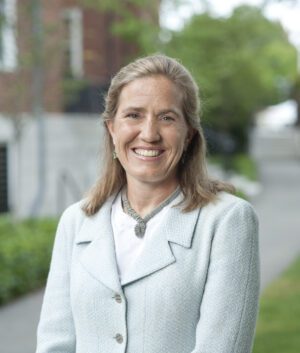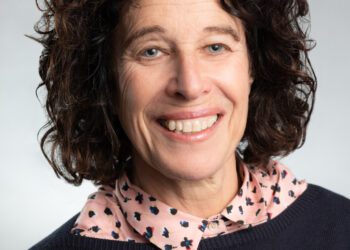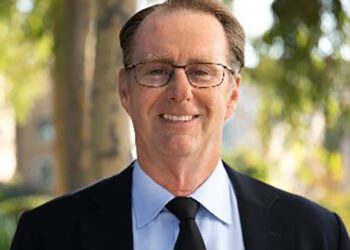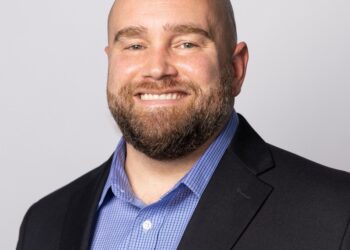
In a candid and inspiring conversation, Professor Caroline Elkins, Aspire Institute faculty advisor, shared about her journey from a low-income, first-generation college student background to becoming a prominent academic figure. Pulitzer prize winner, Professor of History and of African and African American Studies at Harvard University, the Thomas Henry Carroll/Ford Foundation Professor at Harvard Business School, Affiliated Professor at Harvard Law School, and the Founding Oppenheimer Director of Harvard’s Center for African Studies, discussed the challenges faced during her college years, the pivotal role of mentors and networks, and her admiration of Aspire Institute.
Did growing up in a low-income first-generation background create a sense of pressure for you to excel in your early life?
Yes, and in part, I felt like it was life without a safety net. If I didn’t make something of myself, nobody was going to take care of me.
I always felt there was something bigger out there that I was chasing. I didn’t know what that was at the time, but I wanted to get out, and then I also wanted to make a difference and impact the world – those are two factors that have really driven me.
How did your upbringing as a first-generation, low-income individual influence your college experience?
It was really hard. I went to Princeton, [and] I arrived in 1987. On the one hand, my opportunity there completely transformed my life. And on the other hand, I was like the kid who fell off the pumpkin truck.
I think finding your people is really important early on.
I was in these classes with people who’ve gone to really famous boarding schools that I’d never heard of, and they seem[ed] so sophisticated. But I found a friend or two — people who are similar to me. A very good friend of mine from the south side of Chicago also was a first-gen student, African American woman, [and] was very helpful and inspirational. I think finding your people is really important early on. Her name is Mellody Hobson, [and] she [went] on to become CEO of the largest African American financial company in the world. She was the [former chairwoman] of DreamWorks, chair of the board of Starbucks, and married to George Lucas now. So she’s done very well for herself as well. Far better than I have.
What resources did you rely on in college to ensure your academic and personal success?
Princeton was pretty amazing. I think it was really ahead of its time. Not only did they give financial aid, but I was very interested in Africa, I was very interested in history, and each summer that I was there, Princeton paid for my research. One summer, I was in Africa doing development work, another summer doing senior thesis research; and, to give you an example, what they understood was that it was not just that I needed the funding to go do this work, but I needed the funding to offset what I would have earned in a summer job. They also covered that – and that was pretty impressive for a school in the late 80s and early 90s.
Did you have a particular person at university who played a significant role in guiding you toward a successful path?
Yeah, I think there’s two things when I think about my success. One is peers and the other is mentors. My advisor [was] a guy named Bob Tigner. I took a first semester freshman year course with [him] on African history. It became my major, because I loved the topic and I was so inspired by him. He became my lifelong mentor [until] he passed away last year. Whenever I did anything or I needed advice, he was always there.
There’s two things when I think about my success. One is peers and the other is mentors.
How did you navigate the professional world without much networking or support from your parents?
I think the combination of mentors and networks that I was accumulating.
Most importantly, I think it was around my academic mentors. I became, obviously, an academic and what mattered with them was two things: my real passion for the topic and subject matter of what I was doing and also my excellence in grades.
I also knew in school this was my one lottery ticket. This was my opportunity. I was not going to squander it.
So, [I] graduated summa, [and] did all the things that I knew were in my control to really make something of this opportunity. That’s why I tell [my kids] and all kids: show up on time prepared. 95% of the students in my classes didn’t do that.
In terms of people who help me, I think I feel so strongly about mentoring now because certain people have really taken an interest in me and seen the possibility of who I could become.
As one of the first openly gay women to lead a department at Harvard — the department of Arts and Sciences — how did this impact your professional life?
I think that I’ve been very lucky. One of the things that [Harvard] is very good at is [being] inclusive and welcoming. I have never felt any kind of discrimination. I’ve had leadership positions, I have appointments in three different schools at the university, and I think it’s very important for all young people to know that they need to be able to be [who they are] to fully realize [their] own self.
To have happiness in your career, to be productive in your career, to really make an impact, you have to be who you are. And if you aren’t in a situation where that’s possible, you need to try.
To have happiness in your career, you have to be who you are.
I know that many students live in parts of the world where it’s a lot harder. But to the degree that you can, find yourself in a place, and particularly in a workplace, that allows you to thrive. It’s probably one of the single most important things for young people, especially if you’re coming out of college. Because that first work experience or two can have both wonderful transformative effects or really lasting scarring effects.
Did you encounter any challenges as an openly gay woman when transitioning to the predominantly male-dominated Harvard Business School?
No. I’m very proud of my colleagues. I’ve always felt as though I’m judged on my professional success, and also my contributions to the community. I’ve never felt as though that’s inhibited anything in any way or that it’s impacted how people think about my career path at the university.
Why did you choose to work with, volunteer for, and help Aspire grow?
Because it’s a genius idea! Really, it’s a genius idea because the philosophy — the mission behind it — is: how do we institutionalize the elements that we know are crucial in young people’s success and young people in general — particularly young people who are coming from first-gen families — for mentoring, [and] for building ecosystems with peers are less readily available?
Aspire is leveraging both technology and the collective determination of thousands of young people around the globe to make a difference in this world. It’s not the lack of talent, it’s the lack of opportunity.
It’s not the lack of talent, it’s the lack of opportunity.
Aspire is doing this not on a one-off kind of basis, but they’ve really targeted how to do this at scale, and it’s just a privilege to be part of the team and this journey.
What has been your most impactful experience with Aspire, either during the case studies or just in general?
I just love teaching the students. Seeing them light up on my Zoom screen eager to get in and share their ideas. Either directly engaging with me or in the chat, we can literally feel the excitement and the knowledge on their part of the opportunity that is right in front of them. Yeah, it’s just magical.
What advice would you give to a current first generation low income student navigating college in the professional world?
There’s no substitute for hard work. Nobody will care about your own success more than you do.
There’s no substitute for hard work. Nobody will care about your own success more than you do.
I’m 54 and I look around, and it’s like, wow, the people I came of age with are running companies and mayors and all these kinds of things. They’re the people I pick up the phone [to call] when I’m not just needing something, but when I’m looking for feedback or inspiration or whatever the case may be — so that would be my advice.
Don’t be afraid to be persistent with individuals who you think can help you. Never forget how important your peers are as you move through and build your own life and career.




